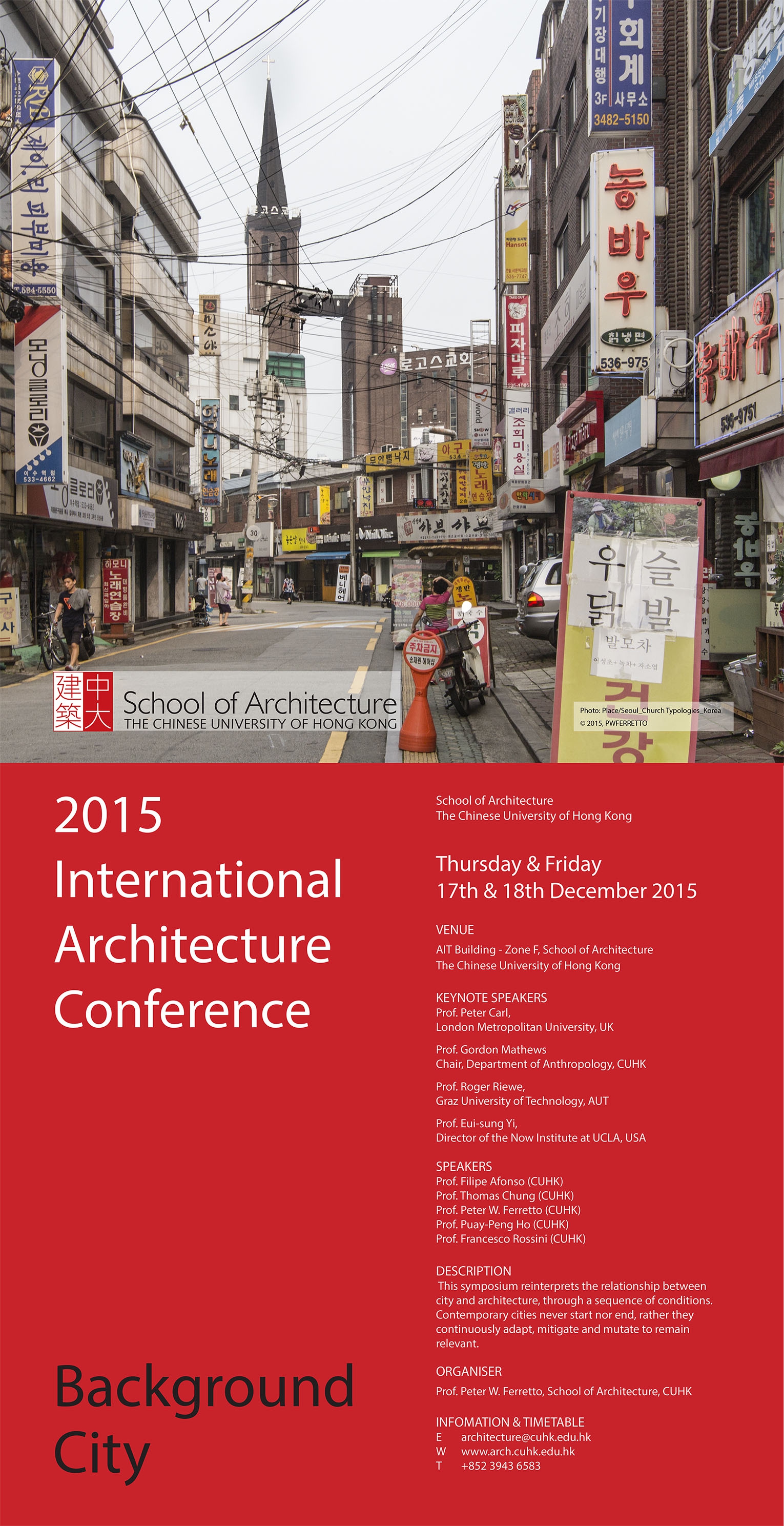活动
2015 International Architecture Conference – Background City
2015年12月17日
AIT Building – Zone F, School of ArchitectureThe Chinese University of Hong Kong
International KeynoteProf. Peter Carl, London Metropolitan University, UKProf. Gordon Mathews, Chair of the Department of Anthropology, CUHK Prof. Roger Riewe, Graz University of Technology, AUTProf. Eui-Sung Yi, Director of the Now Institute at UCLA, USACUHK SpeakersProf. Filipe Afonso, CUHKProf. Thomas Chung, CUHKProf. Peter W. Ferretto, CUHKProf. Ho, Puay Peng, CUHKProf. Francesco Rossini, CUHKRound Table Moderated by: Prof. Stanislaus Fung, SoA, CUHK
Tel: +852 3943 6551
Email: architecture@cuhk.edu.hk
In architectural terms, architects are right now looking for a pretext as to why certain things cannot happen and are extremely blocked in terms of discovering potential in existing conditions.
Koolhass, R. “Conversation with Students” (New York, Princeton Architectural Press, 1996)
Inspired by observations of real urban settings, this conference proposes to examine the contemporary city as a condition rather than a physical entity, no longer under the control of architects, urbanists and planners, but governed by multiple coexisting agents. ‘Background City’ seeks to make sense of the metropolis not through abstract postulations based on preconceived models but by focusing on the present reality of the city, the actual urban every day that stares at us in the face, the urban presence of the here and now.
Understanding the city as a backdrop raises fundamental questions regarding what constitutes a building, what defines architecture and how cities transform over time. Today in an age of extreme specialization, where experts perpetually dissect every element of the city, we have become numb/blind to our everyday surroundings, to our daily existence, the background noise of the city that is simply there, taken for granted and rarely questioned. The first Background City International Conference at CUHK, aims to re-awaken a sense of wonder in the present, to nullify the effects of collective urban amnesia, and ignite critical considerations to the role of the anonymous city in our society.
Contemporary cities never start nor end, rather they continuously adapt, mitigate and mutate to remain relevant, expanding and contracting to survive. With the recent imperative in the profession to withdraw from claims of an actual city towards postulations regarding the possible future city, aka the Smart City, the conference address notions of the incoherent, forgotten and undefined city, as characterised in 10 specific examples from world cities in Asia, Europe and America. Today, as several hundred million more people are expected to move to cities in East Asia over the next 20 years as economies shift from agriculture and manufacturing to services, when the China’s Pearl River Delta has overtaken Tokyo to become the world’s largest urban area in both size and population, Hong Kong is in a strategic position both geographically and politically to examine the role of what our cities are, rather than what they might become.


